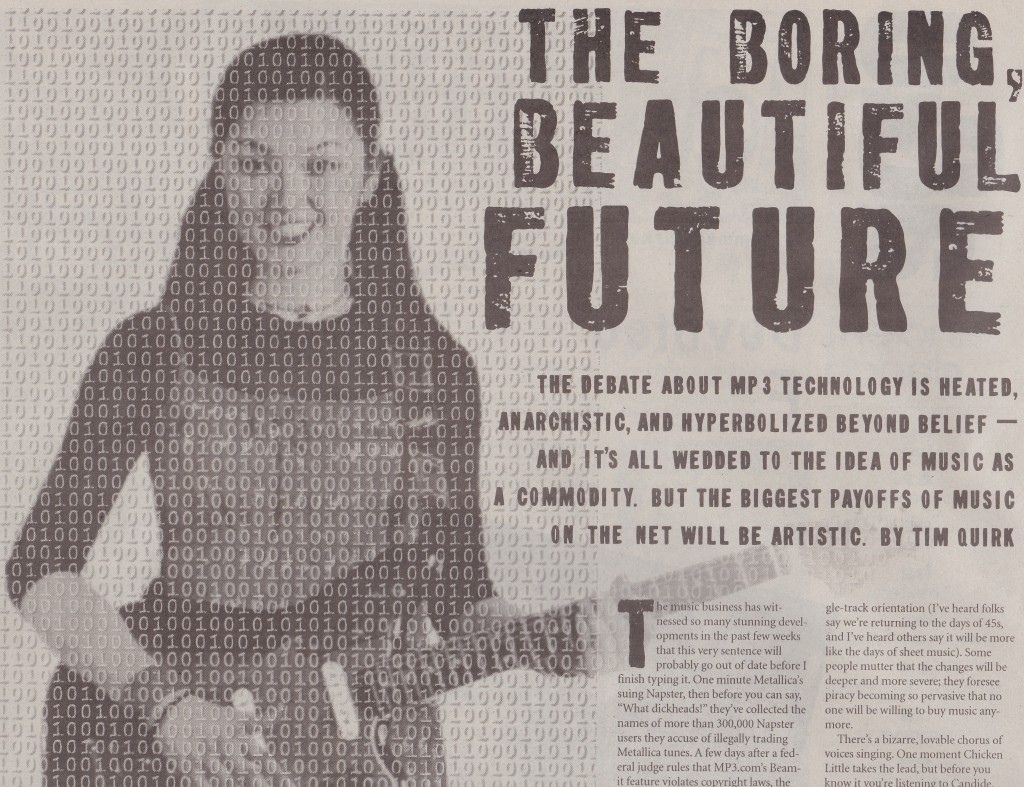While  the amazing storage capacity mp3 players made possible at the turn of this century felt pretty profound, the Walkman was a more revolutionary consumer electronic device, as this presentation from the 2010 Pop Conference attempts to explain. I searched in vain when writing this for a Malcolm McLaren quote I remembered from the late-’70s/early-’80s, in which he damningly contrasted white people hiding behind Walkman headphones with black youth who more proudly imposed their soundtracks on the world around them. Like a lot of things McLaren said, it was savvy, provocative, and wrong. Turns out those headphones had more power to shape the environment.
the amazing storage capacity mp3 players made possible at the turn of this century felt pretty profound, the Walkman was a more revolutionary consumer electronic device, as this presentation from the 2010 Pop Conference attempts to explain. I searched in vain when writing this for a Malcolm McLaren quote I remembered from the late-’70s/early-’80s, in which he damningly contrasted white people hiding behind Walkman headphones with black youth who more proudly imposed their soundtracks on the world around them. Like a lot of things McLaren said, it was savvy, provocative, and wrong. Turns out those headphones had more power to shape the environment.
The world changed, quietly, on June 22nd 1979, the day Sony unveiled the first “personal stereo” to skeptical journalists in Tokyo .





